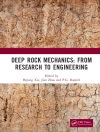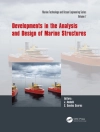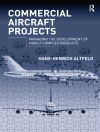This work presents the results of RILEM TC 237-SIB (Testing and characterization of sustainable innovative bituminous materials and systems).
The papers have been selected for publication after a rigorous peer review process and will be an invaluable source to outline and clarify the main directions of present and future research and standardization for bituminous materials and pavements.
The following topics are covered:
- Characterization of binder-aggregate interaction
– Innovative testing of bituminous binders, additives and modifiers
- Durability and aging of asphalt pavements
- Mixture design and compaction analysis
- Environmentally sustainable materials and technologies
- Advances in laboratory characterization of bituminous materials
- Modeling of road materials and pavement performance prediction
- Field measurement and in-situ characterization
- Innovative materials for reinforcement and interlayer systems
- Cracking and damage characterization of asphalt pavements
- Recycling and re-use in road pavements
This is the proceedings of the RILEM SIB2015 Symposium (Ancona, Italy, October 7-9, 2015).
قائمة المحتويات
Part I. Characterization of binder-aggregate interaction.- Development of Failure Master Curve for Asphalt Mastics Characterization, by P. Teymourpour, H. U. Bahia.- Semi-automatic evaluation of the degree of bitumen coverage on bitumen-coated aggregates, by R. Lamperti, C. Lantieri, C. Sangiorgi, G. Bitelli, A. Simone.- An Advanced Low Temperature Rheological and Fracture Test Method for Bitumen Purchase Specifications and Pavement Performance Prediction: 4-mm DSR/ABCD, by M. J. Farrar, S. Kim, T. Pauli, J. P. Planche.- Microstructure-Based Visco-Elastoplastic Continuum Model of Asphalt Concrete, by M. H. Zahabi, M. M. Karimi, N. Tabatabaee.- Estimation of appropriate filler quantity in asphalt mix from microscopic studies, by A. Kuity, A. Das.- A mineralogical approach of the interactions between bitumen, clay and water in hot mix asphalt (HMA), by C. W. Chen, V. Gaudefroy, M. Duc, Y. Descantes, F. Hammoum, J. P. Magnan.- Part II. Innovative testing of bituminous binders, additives and modifiers.- Storage stability of bituminous binders reinforced with nano-additives, by E. Santagata, O. Baglieri, L. Tsantilis, G. Chiappinelli.- Ageing performances of asphaltite modified bitumens.- comparisons with equivalent petroleum bitumens, by A. Themeli, E. Chailleux, F. Farcas, C. Chazallon, B. Migault, G. Didelet.- The Interaction of Polyphosphoric Acid with Bituminous Binders, by H. Soenen, S. Heyrman, X. Lu, P. Redelius.- LIBS: An innovative laboratory technique for the characterisation of bituminous material, by H. Martin.- Rheological Evaluation of Short- and Long-Term Performance for Warm Mix Asphalt (WMA)Binders, by M. Sadeq, E. Masad, H. Al-Khalid, O. Sir, D. Little.- Rheological Characterization of Asphalt Binders and Mixtures Modified with Carbon Nanotubes, by H. Wang, J. Yang, M. Gong.- Part III. Durability and aging of asphalt pavements.- Bitumen / Aggregate affinity – Rilem Round Robin Test on rolling bottle Test, by L. Porot, J. Besamusca, H.Soenen, A. Apeagyei, J. Grenfell, D. Sybilski.- Study on the ageing behavior of South American bitumen, by S.A. Mohan, J.L.M. Voskuilen, S.A. Firtoe.- Asphalt mixture sensitivity to water and frost, by M. Maliszewski, A. Zofka, D. Maliszewska, D. Sybilski.- Using Highly Oxidant Gas for Simulating Long-Term Ageing of Asphalt Mix Specimens in the Lab, by D. Steiner, B. Hofko, M. Hospodka, F. Handle, L. Eberhardsteiner, J. Füssl, H. Grothe, R. Blab.- Methods for analyzing the chemical mechanisms of bitumen aging and rejuvenation with FTIR spectrometry, by P. Mikhailenko, A. Bertron, E. Ringot.- LEAB-PA, a half warm Porous Asphalt can increase the lifetime, by G. Gaarkeuken, M. Oosterveld, M.L.M. Sprenger, J.L.M. Voskuilen.- Part IV. Mixture design and compaction analysis.- Production of hot-mix asphalt with PMB: compactability and mechanical behavior characterization, by R. Micaelo, A. Gameiro, L. Quaresma, L. Picado-Santos.- Compaction of Open-Graded HMAs evaluated by a fuzzy clustering technique, by A. Amadore, G. Bosurgi, O. Pellegrino, G. Sollazzo.- Effects of anisotropy on performance of HMA specimens due to roller compaction, by B. Hofko, R. Blab.- Reliance of pavement texture characteristics on mix-design and compaction process, by G. Cantisani, A. D’Andrea, P. Di Mascio, G. Loprencipe.- Coloured asphalt pavements: mix design and laboratory performance testing, by N. Piérard, J. De Visscher, S. Vansteenkiste, A. Vanelstraete.- Evaluation of Air Voids in Reinstatement Materials for Footways, by I. Artamendi, B. Allen, C. Allpress, P. Sabin, P. Phillips.- Part V. Advanced characterization of interlayer systems.- Inter-laboratory Shear Evaluation of Reinforced Bituminous Interfaces, by G. Ferrotti1, A. D’Andrea, M. Maliszewski, M. N. Partl, C. Raab, C. Sangiorgi, F. Canestrari.- Comparison of interlayer bond behavior due to ageing, by C. Raab, J. Grenfell, A.O. Abd El Halim, M. N. Partl.- Investigation of Dilatancy Effects on Asphalt Interface Shear Strength, by C. Tozzo, N. Fiore, A. D’Andrea.- Field study to investigate the impact of conditions of application of tack coats on the interlayer bond strength, by A. Destrée, J. De Visscher, N. Piérard, A. Vanelstraete.- The Use of Four-Point Bending Notched Beam Fatigue Tests to Rank Crack-Mitigating Interlayers, by A. D. Wargo, S. Safavizadeh, Y. R. Kim.- Effects on bonding of anti-reflective cracking solutions at the top bituminous interface of a small airport pavement: a laboratory and modeling study, by P. Tataranni, C. Sangiorgi, A. Simone, V. Vignali, P. Viola, G. Dondi.- Geo-composite-reinforcement of polymer-modified asphalt systems, by F. Canestrari, G. Ferrotti, M. Abuaddous, E. Pasquini.- Part VI. Modeling of road materials and pavement performance prediction.- Prediction of the mechanical properties of aged asphalt mixes from FTIR measurements, by M. Perez-Martinez, P. Marsac, T. Gabet, Emmanuel Chailleux.- Micromechanical description of bitumen aging behavior, by L. Eberhardsteiner, J. Füssl, B. Hofko, F. Handle, M. Hospodka, R. Blab, H. Grothe.- Three different ways of calibrating Burger’s contact model for Viscoelastic model of Asphalt Mixtures by Discrete Element Method, by H. Feng, M. Pettinari, H. Stang.- Experimental investigation on surface performance and acoustic absorption, by F.G. Praticò, R. Vaianab, T. Iueleb.- PSV tyre / test specimen contact, by D. Woodward, P. Millar, G. Mc Quaid, R. Mc Call, O. Boyle.- Surface performance characterization of single-layer surface dressing: a macrotexture prediction model, by F.G. Praticò, R. Vaianab, T. Iueleb.- Part VII. Environmentally sustainable materials and technologies.- Effect of Rejuvenator on Performance Properties of WMA Mixtures with High RAP Content, by M. Sabouri, Y.T. Choi, Y. Wang, S. Hwang, C. Baek, Y. R. Kim.- Effect of warm mix chemical additives on the binder-aggregate bond strength and high-service temperature performance of asphalt mixes containing electric arc furnacesteel slag, by M. Pasetto, G. Giacomello.- Influence of Aging on the Rheological Behavior of Warm Mix Asphalt Binders, by K. L. Roja, N. Roy, J. M. Krishnan.- Laying of Warm Mix Asphalt: Study of the Feasibility of the Workability Measure Modifying the Parameters of the Standard Gyratory Shear Compactor, by A. Fabre des Essarts, A. Dony, S. Faucon-Dumont.- Laboratory Evaluation of Complex Modulus and Fatigue Resistance of Asphalt Mixtures with RAP, by A. Basueny, A. Carter, D. Perraton, M. Vaillancourt.- Laboratory testing methods for evaluating the moisture damage on the aggregate-asphalt system, by S. Anastasio, I. Hoff, C. C. Thodesen, H. U. Bahia.- Hydrothermal study of roads with de-freezing surface, obtained by the circulation of a warm fluid in a bonding porous asphalt layer, by S. Asfour, F. Bernardin, C. Mauduit, E. Toussaint, J. M. Piau.- Mechanical Behaviour of Asphalt Concrete Containing C&D Recycled Materials, by E. Bocci, G. Cerni, S. Colagrande.- Reuse of waste foundry sand mixed with lateritic clayey soils in pavement bases and sub-bases courses, by L. M. Klinsky Gutiérrez, G. T. P. Fabbri, V. S. dos Santos Bardini.- A comparative study of bituminous mixtures with recycled polyethylene added by dry and wet processes, by S. Angelone, F. Martinez, M. Cauhape Casaux.- Rheological characterization of bituminous mastics containing waste bleaching clays, by F. Mazzotta, C. Sangiorgi, V. Vignali, C. Lantieri, G. Dondi.- Asphalt mixture with RAP: Mix design optimization, by N. Bueche, A. G. Dumont, M. Pittet, S. Bressi.- Sustainable urban surface asphalt layers, by R. Botella, R. M. Recasens, P. D. Martín, A. Ramírez Rodríguez, F. Guisado Mateo, E. Moreno Martínez.- Part VIII. Advances in laboratory characterization of bituminous materials.- Experimental Investigation on the Combined Effects of Physical Hardening and Chemical Ageing on Low Temperature Properties of Bituminous Binders, by E. Santagata, O. Baglieri, D. Dalmazzo, L. Tsantilis.-Rheological Testing of Bitumen at Low Temperatures with 4-mm DSR, by X. Lu, P. Uhlback, H. Soenen.- Fatigue rheological characterization of polymer-modified bitumens and mastics, by F. Frigio, G. Ferrotti, F. Cardone.- Influence of hydrated lime on linear viscoelastic properties of bituminous mixtures, by C. V. Phan, H. Di Benedetto, C. Sauzéat, D. Lesueur.- Influence of Mineral Fillers and their Fractional Voids on Mastic Rheological and Mechanical Properties, by E. Romeo, V. Ghizzardi, S. Rastelli, A. Montepara.- Energy Dissipation in Asphalt Mixtures Observed in Different Cyclic Stress-Controlled Fatigue Tests, by I. Isailović, A. C. Falchetto, M. P. Wistuba.- Deterioration of HMA Partially Saturated with Water or Brine Subjected to Freeze-Thaw Cycles, by S. Lamothe, D. Perraton, H. Di Benedetto.- Experimental study of moisture sensitivity of aggregate-bitumen bonding strength using a new pull-off test, by J. Zhang, A. K. Apeagyei, J. Grenfell, G. D. Airey.- Effect of Fine Aggregate Composition on Moisture Susceptibility of Hot Mix Asphalt, by G. LM Leung, A. W. G. Wong.- Evaluation of rutting properties of bituminous binders by means of single shear creep-recovery (SSCR) tests and correlation with mixture performance, by E. Santagata, O. Baglieri, M. Alam, P. Riviera.- Mechanisms of Failure in Uniaxial Repeated Creep Test and the Relationship to Aggregate Packing, by N. Roohi Sefidmazgi, H. U. Bahia.- Development of a test and classification method to objectively determine the colour of coloured bituminous pavements, by K. Denolf, N. Piérard, A. Vanelstraete.- A new performance test for resistance to ravelling by traffic: laboratory and field experience in Belgium, by J. De Visscher, A. Vanelstraete.- Part IX. Field measurement and in-situ characterization.- Active Filler’s Effect on in-situ Performances of Bitumen Emulsion Recycled Mixtures, by G. Betti, G. Airey, K. Jenkins, A. Marradi, G. Tebaldi.- Innovative longitudinal joints between new and old Porous Asphalt, by J. Voskuilen, L. Houben.- High Aircraft Tire Pressure Effects on HMA Airfield Pavements, by N. Garg, Q. Li, M. Haggag.- Development of new embedded expansion joint using high flexibility Stone Mastic Asphalt, by N. Okamoto, T. Kinoshita, T. Futagi.- Development of specifications and guidelines for hot in-place recycling in Finland – Outline and framework, by M. Makowska, T. Pellinen.- Part X. Recycling and re-use in road pavements.- Rheological investigation of asphalt mixtures containing RAP and RAS, by A. C. Falchetto, K. H. Moon, M. P. Wistuba, M. O. Marasteanu.- The effect of curing on the mechanical behavior of cement-bitumen treated materials, by C. Godenzoni , F. Cardone, A. Graziani, M. Bocci.- Blending Simulation of RA and Virgin Binders in Hot Recycled Mixtures, by M. Mohajeri, A. A. A. Molenaar, M. F. C. van de Ven.- Thermal and water effects on virgin bitumen, recycled and mastic mixtures, by S. dos Santos, L. D. Poulikakos, M. N. Partl.- Comparative Analysis of Stiffness Modulus and Fatigue Resistance of Asphalt Concretes Containing RAP Materials, by N. Baldo, E. Manthos, M. Pasetto, A.F. Nikolaides.- In plant production of hot recycled mixtures with high reclaimed asphalt pavement content: a performance evaluation, by A. Stimilli, A. Virgili, F. Giulian, Francesco Canestrari.- Evaluation of a 100% Rap Recycling Project in Fort Wayne, Indiana, by Geoffrey M. Rowe, John Barry. Ken Crawford.- Hot Recycling of Reclaimed Asphalt using a Bio-based Additive, by A. Grilli, E. Bocci, M. Bocci.- Tests Campaign Analysis to Evaluate the Capability of Fragmentation Test to Characterize Recycled Asphalt Pavement (RAP) Material, by D. Perraton, G. Tebaldi, E. Dave , F. Bilodeau, G. Giacomello, A. Grilli, A. Graziani, M. Bocci, J. Grenfell, P. Muraya, M. Pasetto, K. Kuna, A. Apeagyei, D. Lo Presti, G. Airey, K. Jenkins, E. Hajj, M. Hugener, P. Marsac.- Part XI. Cracking and damage characterization of asphalt pavements.- Comparison of Laboratory Cracking Test Results with Field Performance of Moderate and High RAP Content Surface Mixtures on the NCAT Test Track, by R. C. West, N. H. Tran, A. J. Taylor, J. R. Willis.- Implementation of Laboratory Testing to Predict Low Temperature Cracking Performance of Asphalt Pavements, by E. V. Dave , B. Helmer, C. Hanson, J. Munch, L. Johanneck.- Fatigue Performance of Stone Mastic Asphalt designed with the Bailey’s Method, by M. Pasetto, N. Baldo.- Evaluation of different methods for the estimation of the bitumen fatigue life with DSR testing, by A. Pereira, R. Micaelo, L. Quaresma, M. Cidade.- Evaluation of crack propagation in asphalt mixture through photoelasticity, by S. Büchler, M. Wistuba, A. C. Falchetto.












